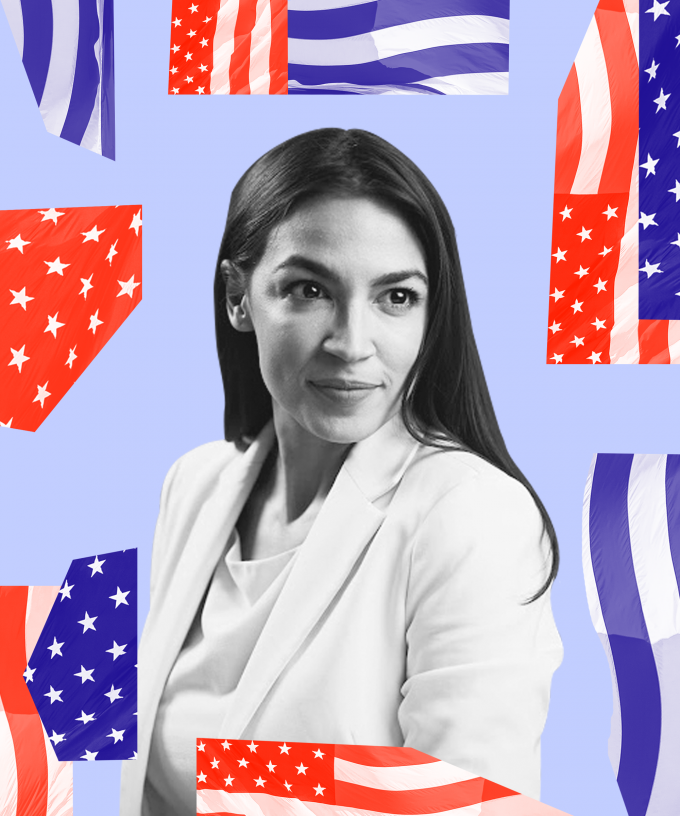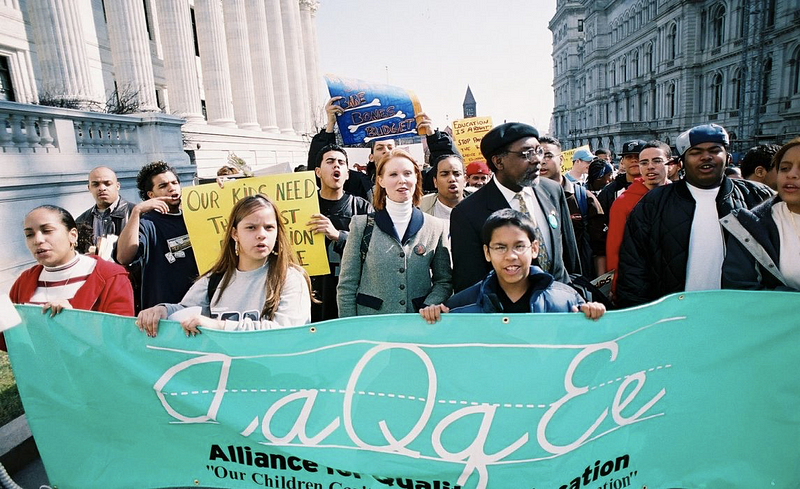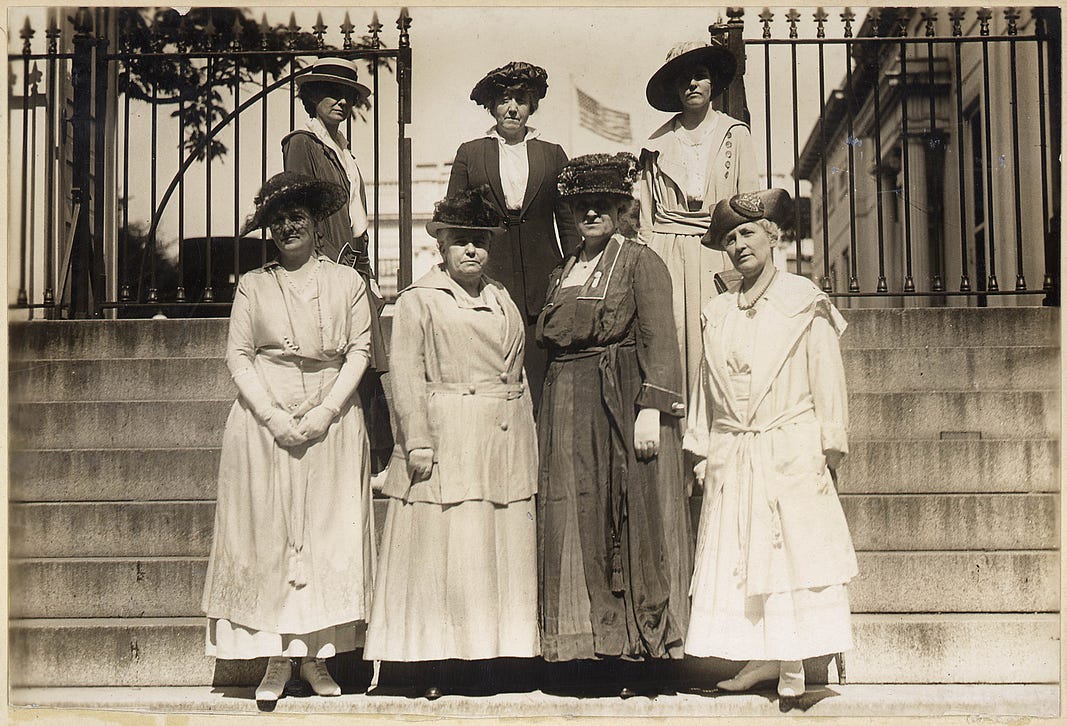This story was co-authored by Lyka Sethi and Maggie Stamets.
The nationwide surge of first-time female political candidates running in recent elections is nothing short of groundbreaking. As we write, thousands of women across the country are launching grassroots campaigns and reaching out to organizations like EMILY’s List, Rise to Run, She Should Run, and more for support and resources. According to an Associated Press report, 309 women from both major parties filed papers to run for the House in 2018, beating the previous record of 298 in 2012. And last Tuesday, several women won over their male opponents in primaries across the country.
Pundits are now speculating on the impact that this shift will have during such a crucial midterm year. Political analysis aside, one thing we know for sure is that women are not only going to keep running for office in record numbers — they’re going to continue to win.

Undeniably, the biggest win for progressives last weekwas Alexandria Ocasio-Cortez’s victory over incumbent Joe Crowley in New York’s 14th district. The 28-year-old Latina woman from the Bronx ran on a progressive platform calling for Medicare for all and abolishing ICE. When questioned about her positions, she responded, “There is nothing radical about moral clarity in 2018.”
Ocasio’s win in the Democratic primary is significant not only because she took the seat of the number four democrat in the House, but also because it shows a shift in the perception of who can qualify as a strong candidate. The former Bernie Sanders campaign organizer and self-described Democratic Socialist raised only $200,000, but managed to execute a powerful grassroots campaign beginning with a viral campaign video. Using social media and putting in the time to knock on doors, she drew people in her district out to vote — many for the first time.
If an establishment titan like Crowley who was poised to take over for Nancy Pelosi as Democratic Leader of the House and raised over $3 million can be defeated, no seat is safe. You don’t need millions of dollars, powerful Washington connections, or a watered-down platform. People are hungry for impassioned progressives who will speak to them and fight for issues that directly affect their communities.

Ocasio-Cortez isn’t alone; women all over the country are running in every facet of government, from Cynthia Nixon looking to unseat Andrew Cuomo as New York Governor, to Alessandra Biaggi running for Senate. Also last week, Liuba Shirley, a candidate in New York’s second district Long Island, won against incumbent DuWayne Gregory. Shirley is a mother and community organizer who made headlines before her victory for gaining permission from the FEC to use campaign funds for childcare. These victories continue to show that people want to be represented by candidates who understand what they go through everyday.
Since the 2016 presidential election, progressive women have banded together — we’ve marched, we’ve protested, we’ve called our senators demanding to be heard. Through these efforts, we have come to a collective realization that the political sphere doesn’t exist in some far off universe, inaccessible to anyone who isn’t a straight cis man with a fancy law degree, a family legacy, inconceivable wealth, or light skin. We can and must carve seats for ourselves at the table, or things may never change.
There is much work to be done, particularly in further elevating the position of young women of color and members of the LGBTQ community and allowing them access to these influential roles. Rutgers University’s Center for American Women and Politics (CAWP) states that the number of women serving in state legislatures has more than quintupled since 1971. But at this moment, we still only hold 20% of congressional seats, 25% of state legislature seats, and 20% of mayoral positions in the 100 largest cities in the country. There are currently only six women governors in office throughout the country.

Fewer than a hundred years ago, female activists won the suffrage movement after a long and arduous battle. While having the right to vote has taken us far, the road to equality stretches far ahead. Women of all backgrounds and identities are standing up and challenging incumbents in several states, but for many it can feel like a daunting task to follow suit. Yes, Danica Roem successfully became a Virginia Delegate last year, Nixon is running against Cuomo in this year’s gubernatorial race, and Ocasio-Cortez won the Democratic primary in her home district. The list of inspiring stories goes on, but that doesn’t necessarily mean it’s instantly easier for all of us to take part.
So before you start having an existential crisis and consider completely changing career paths, know that there are ways to start small and create tangible impact without upending your life. Getting politically involved in your local community is just as important as running for congress. It’s possible to engage beyond internet slacktivism and to avoid the overwhelming helplessness and apathy that can pervade daily life in these turbulent times. A few simple and manageable actions can give you the tools to make a real difference.
Start by finding your community board and attending a meeting. Check out a New York City Council hearing and get to know your local council members and what they stand for. If you have kids, join a local educational committee, whether it’s a Parent-Teacher Association or a Citywide Education Council. You don’t even have to take on a leadership role — simply attend, listen, and speak up if you feel inclined. Volunteer with organizations that service people in your area. Get out and talk to your neighbors and local business owners. Learn about what’s happening all around you and help spread the word about common challenges. And you don’t have to go at any of this alone — there’s strength in numbers, so bring a roommate or friend along for the ride!
These (not-so) baby steps can bring new meaning to our lives and open our minds up to a world where change and equality are possible and scaleable, if we just don’t stop trying.
This is just the beginning: we have more state primaries in September and midterm elections coming up in November. 2018 has been dubbed by some as “The Year of the Woman”, but we’d rather call it The Year Women Gained Representation and Turned This Country Around.
Let us know what you think of Nooklyn Stories by tweeting us @nooklyn, reaching out on Facebook, or finding us on Instagram @nooklyn.stories!
Photo credits:
1) Cover photo by Monica Melton on Unsplash
2) Illustrated by Hannah Minn for Refinery29
3) Image courtesy of cynthiafornewyork.com
4) Image courtesy of the U.S. National Archives